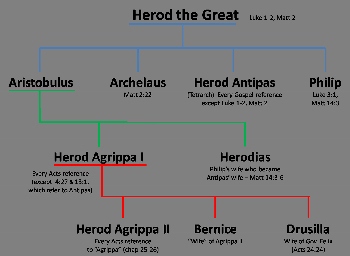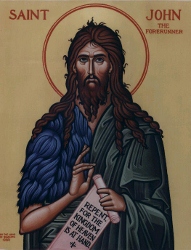Sermon: Peace and Grace and New Light (Janet Hudson 07-15-2012) back
From (Paul), an apostle of Christ Jesus by the will of God,
To the holy ones in Ephesus who are faithful in Christ Jesus:
Grace to you and peace from God our Creator and from our Savior Jesus Christ.
Ephesians 1:1-14
The author of this letter to the Ephesians has two claims to fame: He was an apostle (1) by the will of God (2).
He was an apostle: He belonged to Christ – he was not his own to command. He was under orders, commissioned and sent out with a special task to do. He was delegated by a Power far greater than himself, thus he spoke with the full authority of God.
This greeting was the usual greeting Paul used in his letters: Grace to you and peace. These are the two great words of the Christian faith.
Grace: Grace is always something lovely. It’s from the Greek ‘charis’ – meaning charm. A Christianity which is unattractive and without charm is no real Christianity. These qualities are a gift from God as we live and move and have our being in God. They are the very characteristics of God’s self. Sheer loveliness and sheer generosity.
Peace: from the Hebrew shalom. Shalom is not about the absence of trouble, hardship, distress, war and violence so much as about everything that calls us to the highest good. It begins with a deep inner contentment – a sense of God and an experience of God’s presence which external difficulties find hard to shake.
The peace of God which passes understanding is not the same peace as the peace Caesar Augustus and all other worldly rulers try to establish. The peace of worldly rulers come through victory. God’s vision of peace is peace through justice. Grace to you and peace!
The story of Herod Antipas in our Gospel reading shows us the very opposite of what the writer to the Ephesians is expressing (Mark 6:14-29). The opposite of grace and peace. A total contrast to all that Paul’s letter to the Ephesians describes as what Christians should aspire to.
 It was Herod’s birthday and he gave a great party. What was to be a wonderful celebration went horribly wrong, not just for John and his friends but for the whole gathered company and for Herod especially.
It was Herod’s birthday and he gave a great party. What was to be a wonderful celebration went horribly wrong, not just for John and his friends but for the whole gathered company and for Herod especially.
Herod’s whole life and his background were almost guaranteed to bring him to this point of tragedy. Let us look at the incredibly complicated marriage tangles of his family tree: When Jesus was born, Herod the Great was king. He was the one reputed to have massacred the baby boys in Bethlehem who might prove to be a threat to him later on. It turns out that he murdered anyone who might threaten him, even his own sons. There was a saying in those days, “It is safer to be Herod’s pig than his son.”
First he married Doris who had a son Antipater whom he murdered. Then he married Mariamme, the Hasmonean, who bore two sons: Alexander and Aristobulus, both of whom he murdered. Before he was killed, Aristobulus had a daughter Herodias – the villain of this story. Herod the Great then married Mariamme the Boethusian. Her son was named Herod Philip. Herod Philip married his niece, Herodias, the daughter of his murdered half-brother, Aristobulus. Herod Philip and Herodias had a daughter – Salome – the young woman who danced at her uncle, Herod Antipas’s birthday party. Herod Philip wasn’t a ruler in Palestine but lived as a wealthy private citizen in Rome.
Papa Herod was not done yet. He married Malthake who bore him two sons: Archelaus and Herod Antipas, the birthday boy. And finally married Cleopatra of Jerusalem who had a son called Philip the Tetrach, who married Salome, the dancer, before finally going to his reward. Herod Antipas, married to the daughter of the king of the Nabataeans, ditched her in order to marry Herodias when he seduced her on a visit to his brother Herod Philip in Rome. Note who Herodias was: She was the daughter of Herod Antipas’ half brother, therefore his niece. She was the wife of his half brother Herod Philip, therefore she was his sister-in-law. What a mess!
John the Baptist had publicly rebuked Herod Antipas for his adulterous marriage to Herodias. Herod was in awe of John but Herodias was filled with hate for him and, when she got the opportunity, demanded his head. 
The collect for John the Baptist’s holy day in The Book of Common Prayer reads: “Make us so to follow his doctrine and holy life, that we may truly repent according to his preaching; and after his example constantly speak the truth, boldly rebuking vice, and patiently suffer for the truth’s sake.”
Why do I tell you all this? First because I found it really interesting. Second because it is the lectionary lesson for the day. And also because it gives us the background to the murder of John the Baptist, and finally, because this story stands in such contrast to what the Epistle to the Ephesians says a Christian is to be.
Let’s take a closer look at the Ephesians passage. Chapter 1, verses 3-14 are one long sentence in the Greek. The passage is not so much a reasoned statement as a lyrical song of praise. The writer praises God for God’s great and wonderful gifts. God, who has blessed us with all spiritual blessings only found in heaven, even as we have been chosen that we might be holy and blameless and full of love.
Let us focus on just one concept here. We have been chosen to be holy and blameless and full of love. One of the songs we often sing here at Dayspring is “We are called, we are chosen, we are Christ for One another.” Jesus said, “You have not chosen me, but I have chosen you” (John 15:16) in order that we should be holy and blameless. To be holy means to be set apart from or to be different. A holy thing is something set apart for a special purpose. It has a significant meaning and is not to be used for ordinary everyday life. It is the same with a holy place – set aside as a “thin” place (to use the Celtic term). A sacred space where people can encounter God.
 Dayspring is such a place. It has been set aside so that people can come and be still and get to know God. Many people have had transcendent experiences here. It is also set aside so that we can live lives which demonstrate ways in which we can live in harmony with the community of all life – rather than exploiting it for capital benefits we have this gift from which to live out call.
Dayspring is such a place. It has been set aside so that people can come and be still and get to know God. Many people have had transcendent experiences here. It is also set aside so that we can live lives which demonstrate ways in which we can live in harmony with the community of all life – rather than exploiting it for capital benefits we have this gift from which to live out call.
God is holy, is other, is different. And God, who is love, calls us to follow and to love.
In the early church, Christians were very different – holy. It was so obvious that being Christian caused the Christians a lot of problems – even sometimes martyrdom. But now the tendency of the Church is to play down the difference between the Church and the world. As long as one lives a relatively decent life and attends church from time to time, one can consider oneself to be a Christian. We do not have to be so different anymore.
One of the most profound things about The Church of the Saviour, and one of the main reasons I was so drawn here, was that here was a group of radically different, excited, committed Christians being accountable to a small group and following call.
John Wesley once said, “I am not afraid that the people called Methodists should ever cease to exist, but I am afraid that they may become a dead sect.” I wonder if Gordon Cosby sometimes feels the same way?
In the light of this passage from Ephesians, the question I am asking myself, and suggesting that perhaps we all need to ask ourselves is, Am I living a life that is different, holy? And as a church, are we still as called and as motivated as we were in earlier years, when we were more closely connected as The Church of the Saviour? Are we living holy lives? More compassionate, more loving more patient and more filled with the Holy Spirit than last year, or even last week?
I have spent 20 years as a member of this Dayspring community, 15 of those years committed to the Wellspring Mission Group. Since the mission group’s life ended 18 months ago, I confess that my life has felt dry and ordinary. I say before you now that I am open to God for a new, invigorating call, or else to see what I do everyday in a new and different light.
Amen.
Sermon by Janet Hudson
Dayspring Church
7/15/2012
Bibliography
God and Empire by John Dominic Crossan (Harper: San Francisco, 2007)
The Letters to the Galatians and Ephesians by William Barclay (St Andrew Press: Edinburgh, 1954)
The Daily Study Bible, Gospel of Mark by William Barclay (St Andrew Press Edinburgh, 1954)